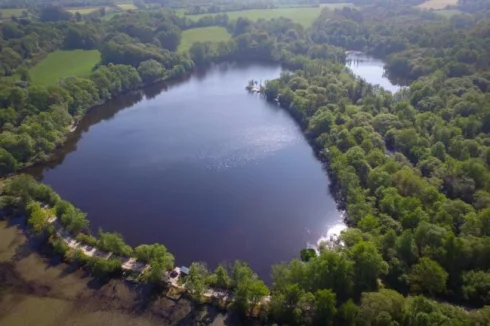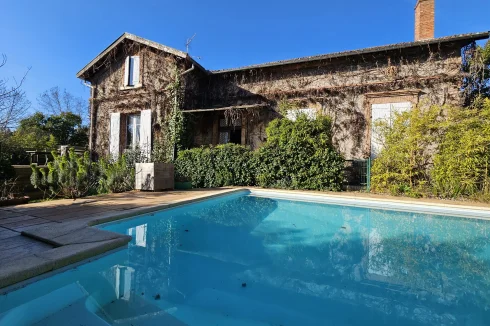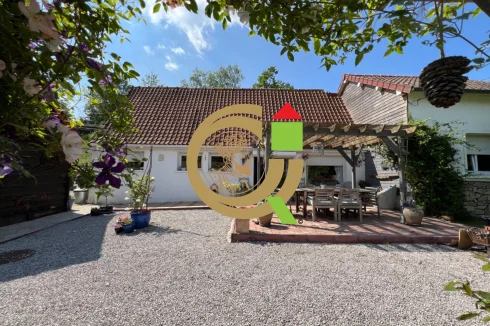Death and Estate Administration in France
Friday 08 June 2018
The administration of the French estate of a deceased proceeds via a notaire and the costs and duration of this process can be considerable.
A notaire must be used to deal with administration of an estate if the deceased owned real estate in France.
The rule also applies if they died domiciled in France with gross assets exceeding €50,000 (spouses and children as heirs, or €3,000 for other heirs).
Whilst notaire fees in connection with the formalities may well be regulated that does not necessarily that they are not insubstantial, or that sometimes inheritors pay more than they need do so to for their services.
The ease and speed with which the task can be accomplished will depend largely on the quality of information provided by the inheritors, the number of inheritors and the level of agreement between them on the division of the estate.
Notaires also differ in their approach and level of competence concerning international estates, so it pays to choose with care.
Process
The main task undertaken by the notaire is called a déclaration de succession, with the division of the estate determined through various actes notariés.
Part of this process involves a submission to the tax authority of an inventory of the estate and the taxes payable (if any) by each beneficiary; the other part deals with division of the estate between the beneficiaries.
In order to carry out this task the notaire will:
- Establish the list of beneficiaries, which can require a genealogy search;
- Verify if a Will exists and/or a gift procedure has been undertaken;
- Liquidate any French marriage contract in existence;
- Evaluate the net worth of the estate;
- Undertake the division of the estate;
- Calculate the inheritance taxes payable;
- Submit the inheritance tax declaration and pay inheritance tax (within 6 months if resident, 12 if non-resident);
- Arrange for payment of the inheritance taxes.
- Distribute the net estate to the inheritors
Charges and Taxes
The level of inheritance taxes (droits de succession) that might be payable varies from 0% to 60%, depending on the value of the estate and the relationship of the beneficiaries to the deceased.
A spouse or civil partner is exempt from inheritance tax, and each child has a statutory tax-free allowance of €100,000 (from each parent).
Notaire charges are likely to be at least several thousand euros, the amount of which will depend on:
- the nature and value of the estate,
- the inheritance planning undertaken by the deceased,
- the relationship of the deceased to the beneficiaries (including minors),
- the wishes of the beneficiaries regarding the division of the estate.
You will find that a number of the tasks are calculated on a fixed tariff, none of which on their own are substantial, although they can mount up.
However, some of the more important tasks are based on a percentage of the value of the property, such as:
- Attestation immobilière/attestation de propriété - a certificate confirming the transfer of real estate to new owner(s).
- Déclaration de succession- preparation and submission of the inheritance tax declaration to the tax authority.
Where the couple are married and they have entered into a French marriage contract, called the régime de communauté universelle, with the clause 'd’attribution intégrale', the surviving spouse automatically receives all of the estate, provided no assets have been specifically excluded from the contract. The same applies to those who have entered into a tontine contract.
Both can assist in speeding up the whole process and reducing the cost, but as the surviving spouse or partner will normally wish the property to be formally transferred into their sole name (without which they could not sell), that will incur transfer taxes and fees.
Other assets (cash, house contents, vehicles etc) will also require that a déclaration de succession is carried out.
If there is a Will then a dépôt du testament will be necessary, unless it is already registered by the notaire.
The cost of such formalities will be based on small percentages of the value of the estate. As there are different rates for different aspects of the process you need to discuss with the notaire just how it is all going to add up.
International owners frequently also consider it necessary to appoint their own legal advisor, particularly if there are also assets outside of France, whose costs are in addition to those of the notaire fees.
The process can take a long time, potentially years in some cases, due in some part to the complementary procedures that need to be taken in relation to assets and beneficiaries outside of France.
John Kitching, specialist French inheritance advisor says that there are also particular problems and difficulties currently arising from the EU Succession Regulation which came into effect for deaths as of 17 August 2015.
“One notable problem at the moment", he says, "is where there is a standard UK Will in place which is deemed to be a choice of UK law and applied to the estate. Unfortunately, standard UK Wills tend to appoint Trustees, often being a solicitor’s firm or a bank with no relationship to the deceased, who hold assets on Trust for the beneficiary or beneficiaries. This can potentially create a 60% tax charge as trusts are not fully recognised or understood in French law. This creates significant problems, and raises various questions to address with the notaire, adding to the overall cost and delay.”
He warns that French bank accounts can also cause huge delays and disproportionately high fees to close down and recover the funds. "This is generally due to three time consuming aspects: firstly the very slow customer service from French banks; secondly the formalities of preparing and submitting a 'déclaration de succession'; and thirdly, most significantly, the massive backlog of work with the Non-Resident French tax office in issuing the required certificate of payment or exemption of tax."
Thank you for showing an interest in our News section.
Our News section is no longer being published although our catalogue of articles remains in place.
If you found our News useful, please have a look at France Insider, our subscription based News service with in-depth analysis, or our authoritative Guides to France.
If you require advice and assistance with the purchase of French property and moving to France, then take a look at the France Insider Property Clinic.





